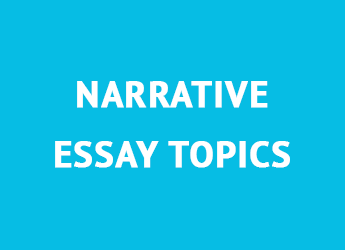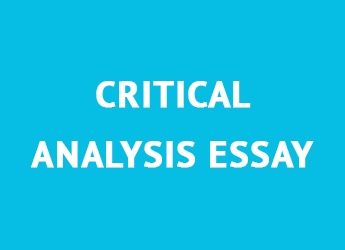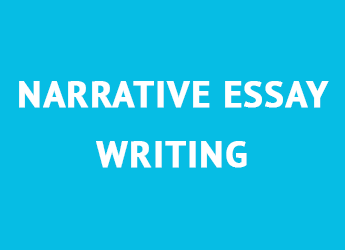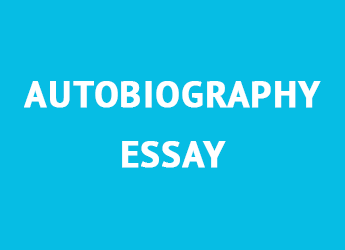Almost every student of any faculty can get an assignment to write and perform a narrative essay. They can get any specific topic or can be free to choose their own. This is one of the most popular tasks in any school college or university. The thing is that narrative essays usually are presented as stories. This format gives students an opportunity to share their experience or describe any event in an interesting and engaging way. But most of all you can train and master your storytelling skills.
One of the challenges for students is selecting the topic for their narrative essay. First of all, you should understand what this format means. Study the examples of other students to discover the typical structure and approach. Then you will see how you can disclose the particular topic using the stories from your life.
But you should realize that the stories you describe, the style and the type of narration will depend on the chosen topic and the task you follow.
Choosing a Topic: Recommendations
First of all, it is better to write about things you care about. This is the key to the creation of the engaging and interesting story that will be meaningful for you and your readers. And you will be fascinated with the writing process as well.
Also, it is not obligatory to use exclusively your experience and life stories. You can get inspired by any story that you know and it can become a basis for your narrative essay. Want to know more about sources of inspiration? Use any relevant episode from your childhood, last vacation, spring holidays and any other remarkable events. Think of the cases when you had to make a difficult choice or to face any other hard situation. Maybe your favorite activities also will help to recall relevant events to build a story upon.
It is better to use real stories. The truthful experience will make your story engaging and understandable to the readers. In narrative essays, it is usually very easy to spot things you have made up or altered in order to make it more “wow”.
If you will take a look at great examples of students’ narrative essays, you will feel how honest and touching they are. They show how personal experience can make a great story to disclose some topics. Examples can be your inspiration as you might recall the similar events that can also attract readers.
One more thing you should pay attention to is the creativity and originality of your topic. Usually, they are the ones who attract teachers and students the most. And when you present an intriguing topic in an understandable way, you will have high chances for success. It is important to persuade the reader that your essay worth attention by presenting it in a way they will be able to feel what you have felt during the described events. Start with the heading. Learn examples of the media headings and you will see which ones look more interesting and tempting to read.
But as we said above, the main factor is your personal interest in the topic. Choose the one you can be passionate about. This set of mind will help you to describe events and emotions in a way your reader will feel it to the fullest.
Narrative Essay Ideas for Telling Personal Stories
If you have difficulty with choosing a topic for your college or school narrative essay task, you can find some ideas below. They can stimulate your imagination and you can eventually develop your own original topic relevant to your life experience. All you need to make sure that the selected topic fits the requirements of your task. Here’s a list for your inspiration:
1. The teacher that stays in my heart forever.
2. How I tried a new job.
3. The day that has influenced our community: natural disaster and human unity.
4. My personal inventions.
5. How I lost and regained faith in humanity.
6. The most dangerous experience in my life.
7. The biggest argument with my best friend.
8. How I discovered the countryside for the first time.
9. The situation that has changed my world view.
10. How a little misunderstanding can lead to a great friendship?
11. Helping others in a critical situation
12. The moment you have changed the opinion about a certain person
13. Remarkable summer episode from your childhood.
14. Childhood secrets and hiding places.
15. The moment you realized your mother was right.
16. How I fought a fight of spiders (or any other phobia)
17. The moment you have realized why your prejudices were mistaken.
18. How did you choose your future profession?
19. Hilarious moments of your life with a significant impact on you.
20. Your first pet: feelings, emotions, fears.
21. The most embarrassing moment in your life.
22. The first time you have experienced a natural disaster.
23. The situation when you have drastically changed your opinion about the person you did not like at first.
24. The situation you got lost in an unknown city.
25. Your team sport experience.
26. The remarkable concerts in your life.
27. The situation you were impressed with the kindness and wisdom of the person you did not expect much from.
28. The case that has a big resonance in your country.
29. The situation from your teenage years that shows your rebellion then.
30. Your heroes that have changed your life.
31. The moment you changed your attitude towards some people.
32. The case when you were disappointed in the people surrounding you.
33. The situation that shows you were an example for someone.
34. Your teenage inspiration.
35. The most significant sports event in your life.
36. The worst birthday present you have ever received.
37. The biggest lesson from your childhood.
38. The situation that made you change your attitude towards adults.
39. The moment you realized your parents wants the best for you.
40. The situation you suffered from racial and national discrimination.
41. Your first experience with the police call.
42. How procrastination has saved your life.
43. When was the first time you have shown your leadership?
44. The moment you realized how big and diverse the world is.
45. School activities that have influenced your future career choice.
46. The biggest dilemma you have faced in your life.
47. How your hobbies have changed with technological progress?
48. The most interesting school of college assignments you have ever had.
49. The most tragic moment in your family.
50. You first writing experience and the results of that text.
Narrative Essay Ideas for College Students
College students can use the narrative essay task in order to introduce them to the new group mates and teachers. Selecting the right topic, you can share the demonstrative experience or simply describe your personal qualities.
1. The most remarkable accomplishment from your life outside school or college.
2. Describe your hypothetical conversation with your idol.
3. Tell about your attitude and behavior on social media pages.
4. What is your attitude towards team sports and other group activities?
5. What was the most complicated task for you in college?
6. Describe what role mobile devices play in your life.
7. The most memorable family experience you have.
8. What is your attitude towards traditional family values?
9. Tell the story when you have underestimated a stranger.
10. Describe your attitude towards TV-shows.
11. Reasons why you decided (not) to keep a diary.
12. How often you try something new in your life?
13. The event that has taught you that experienced can be misleading.
14. A book or movie that has a big impact on your personality.
15. If you would be a superhero, what would be your superpower?
Narrative Essay Ideas about Traveling and Holidays
Most people enjoy traveling and holidays, especially students. Tourism is one of the most popular activities among young people. That is why you likely have a few stories to share. Experiencing new places should be interesting anyway. And if you had a few remarkable stories during the last trip, you can be sure it can be a basis for a great story to tell.
Below you will find some ideas that will help you to direct your thoughts and recall the suitable events:
1. What would be your dream trip?
2. What was your first traveling experience abroad?
3. Describe your typical spring holidays.
4. Do you have any holiday traditions in your family? Describe them.
5. What is your dream country to visit?
6. Describe your most exciting holiday activity.
7. Would you like to travel in space? Why (not)?
8. Do you have any plans to live abroad?
9. What do you prefer: hiking or transport? Why?
10. The trip that has the biggest impact on your life.
11. What were the most famous places you visited?
12. The best and the worst vacation experience.
We want to assure you that you can come up with plenty of other ideas for a narrative essay. Or we will later provide with one more set of popular topics for college students. The main thing in defining the most suitable theme is writing about situations, people or events that mean something for you. This is the key to the engaging and interesting essay. Also, you should keep in mind the requirements you might have in your assignments as well as basic rules for writing narrative essays. If you do not have time for completing your writing task, you can always ask experts to write your narrative essay.
However, it is significant to learn how to write a narrative essay and practice in this task. Writing skills you will master with these assignments will be useful in many other life situations. You will learn how to arrange your thoughts and be a great storyteller. Appealing to your creative side will also stimulate your imagination. Despite the fact you will describe real events, you can come up with creative but understandable metaphors and other means to make your essay more engaging and moving. You will learn how to use your own experience in order to prove a point and make conclusions.












